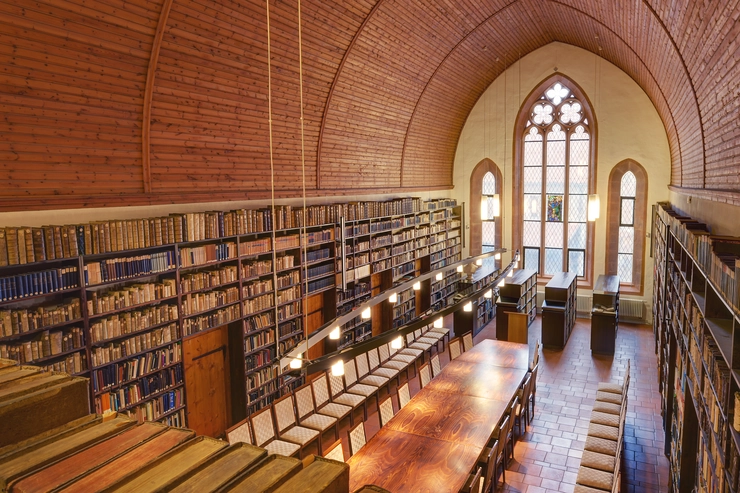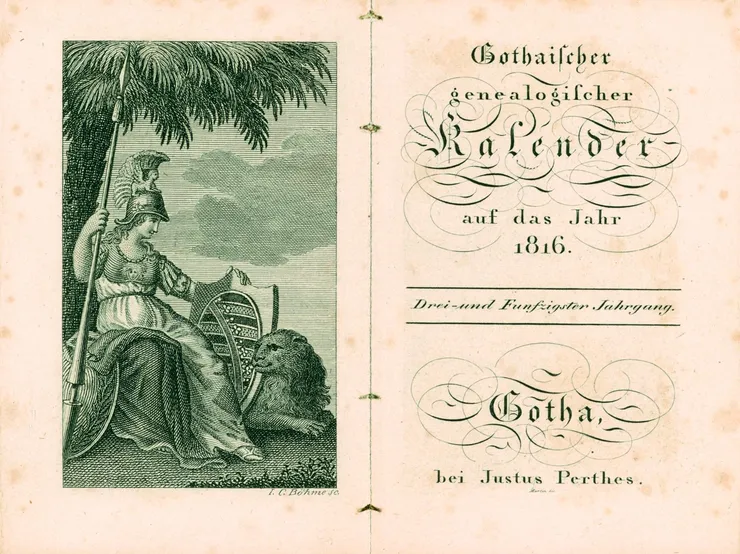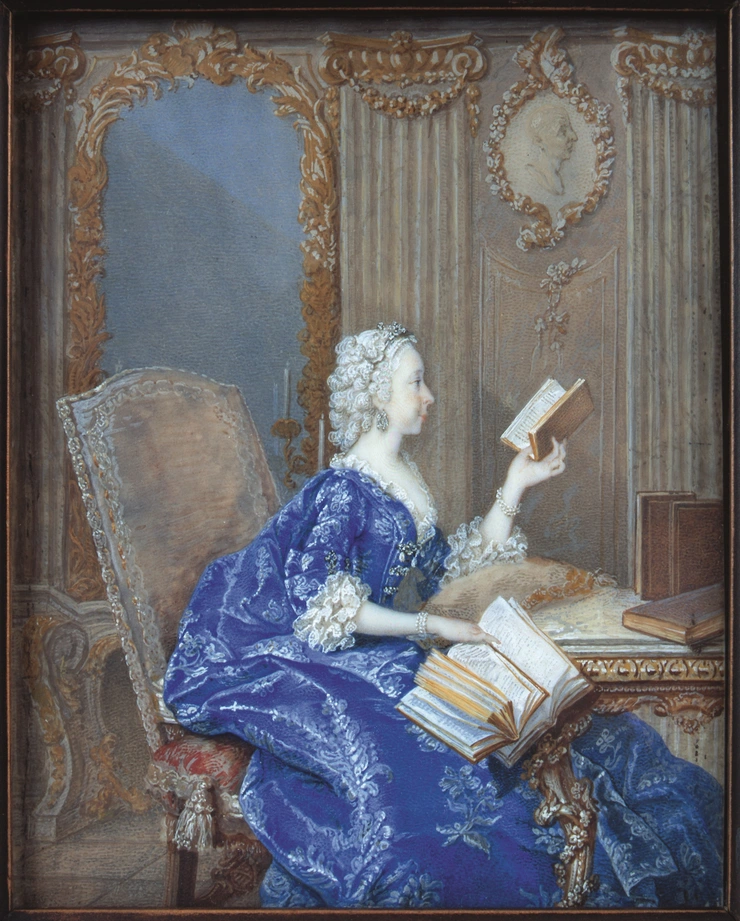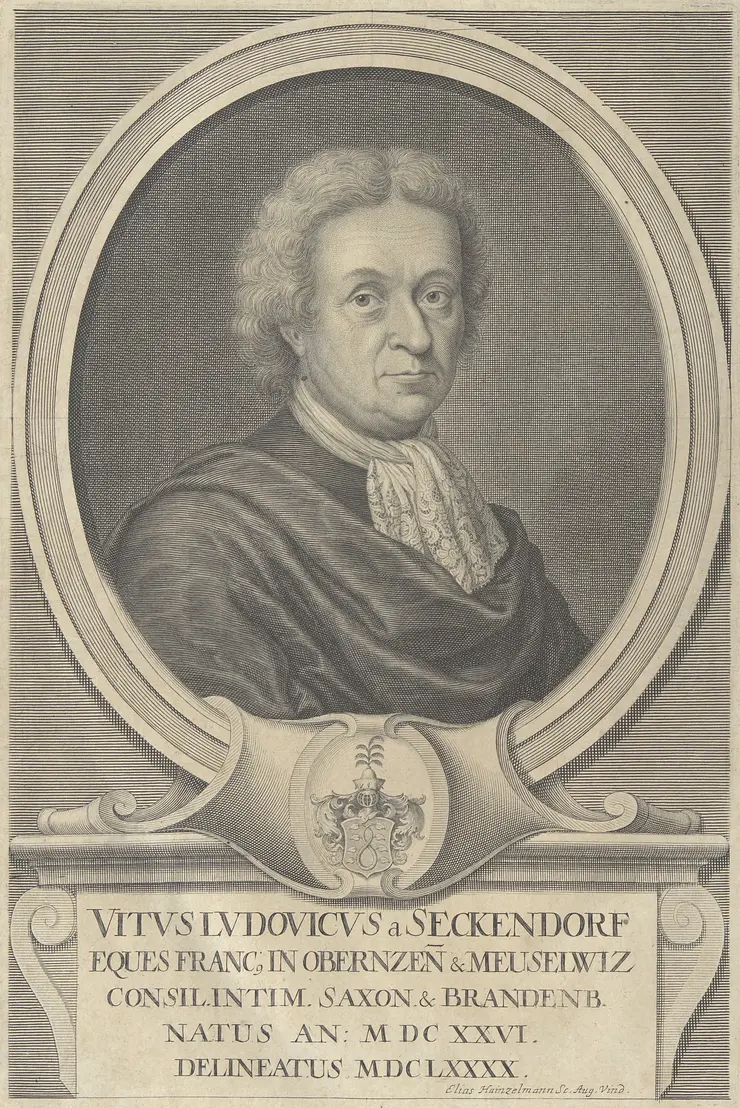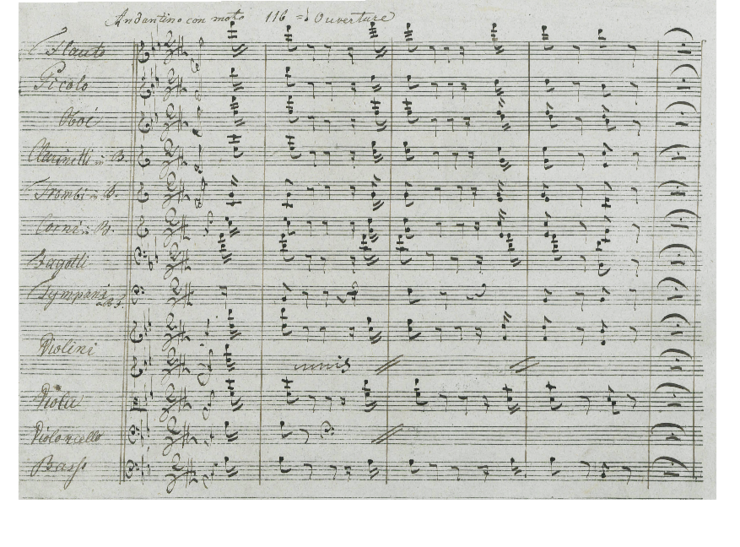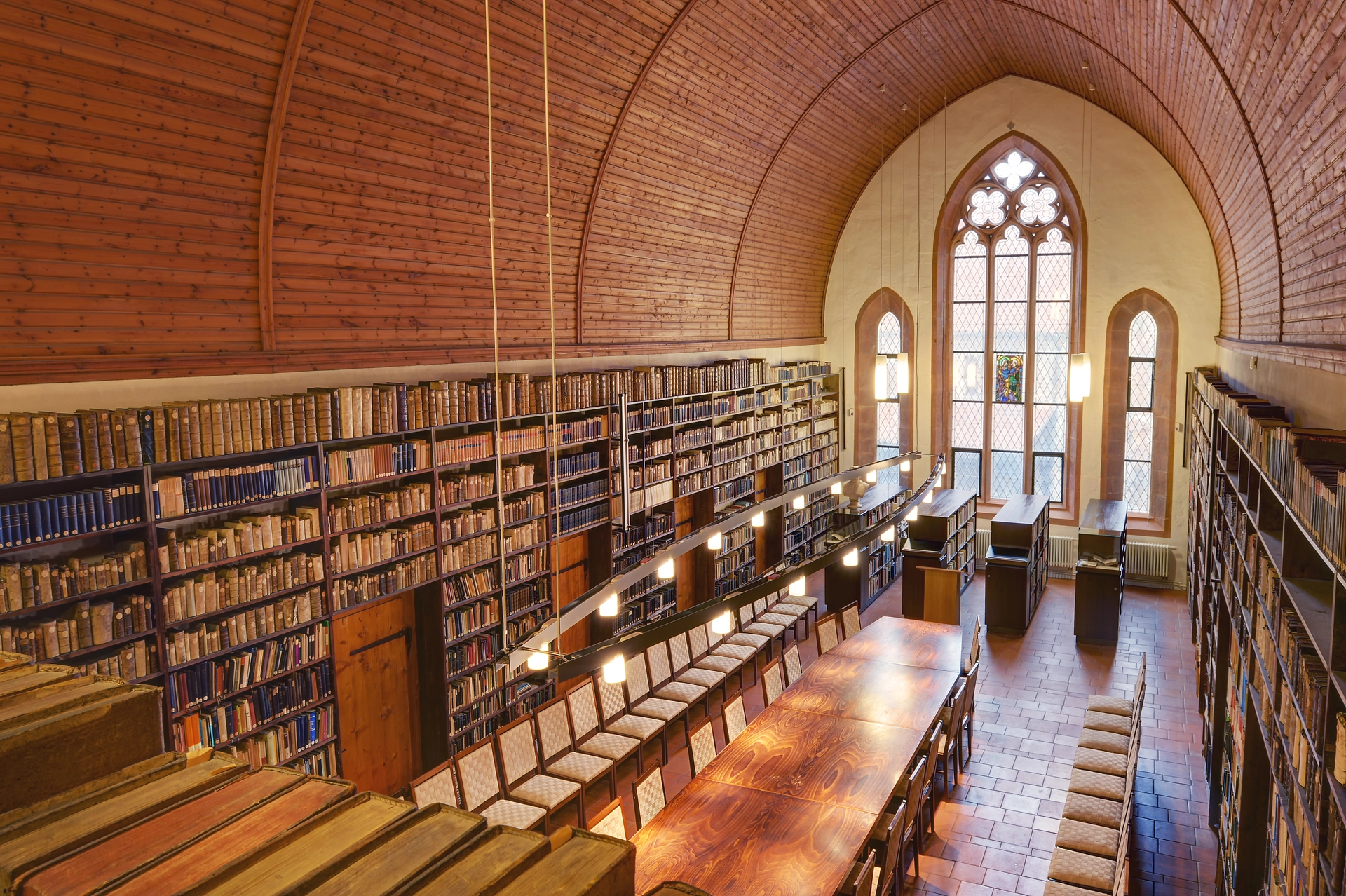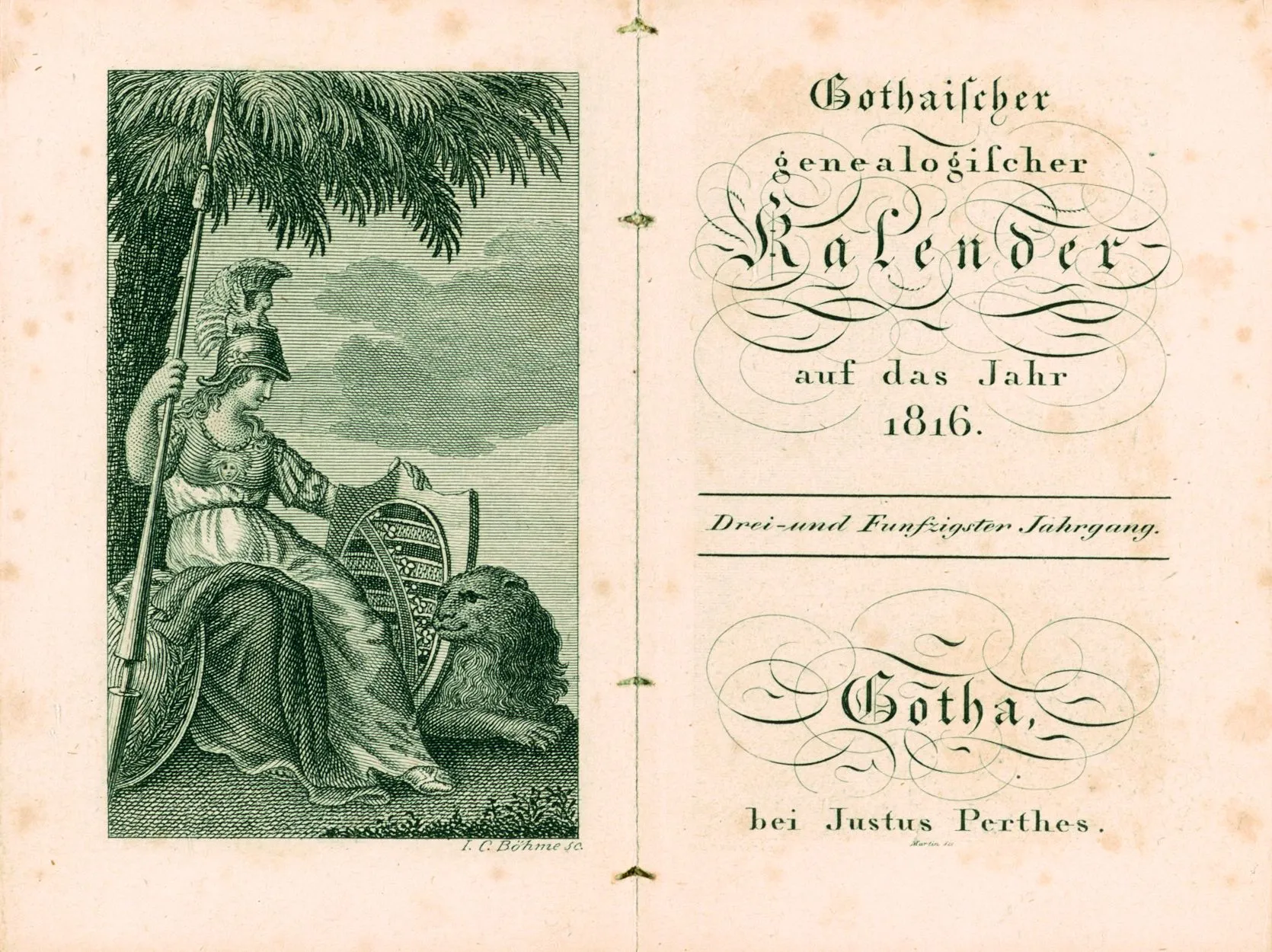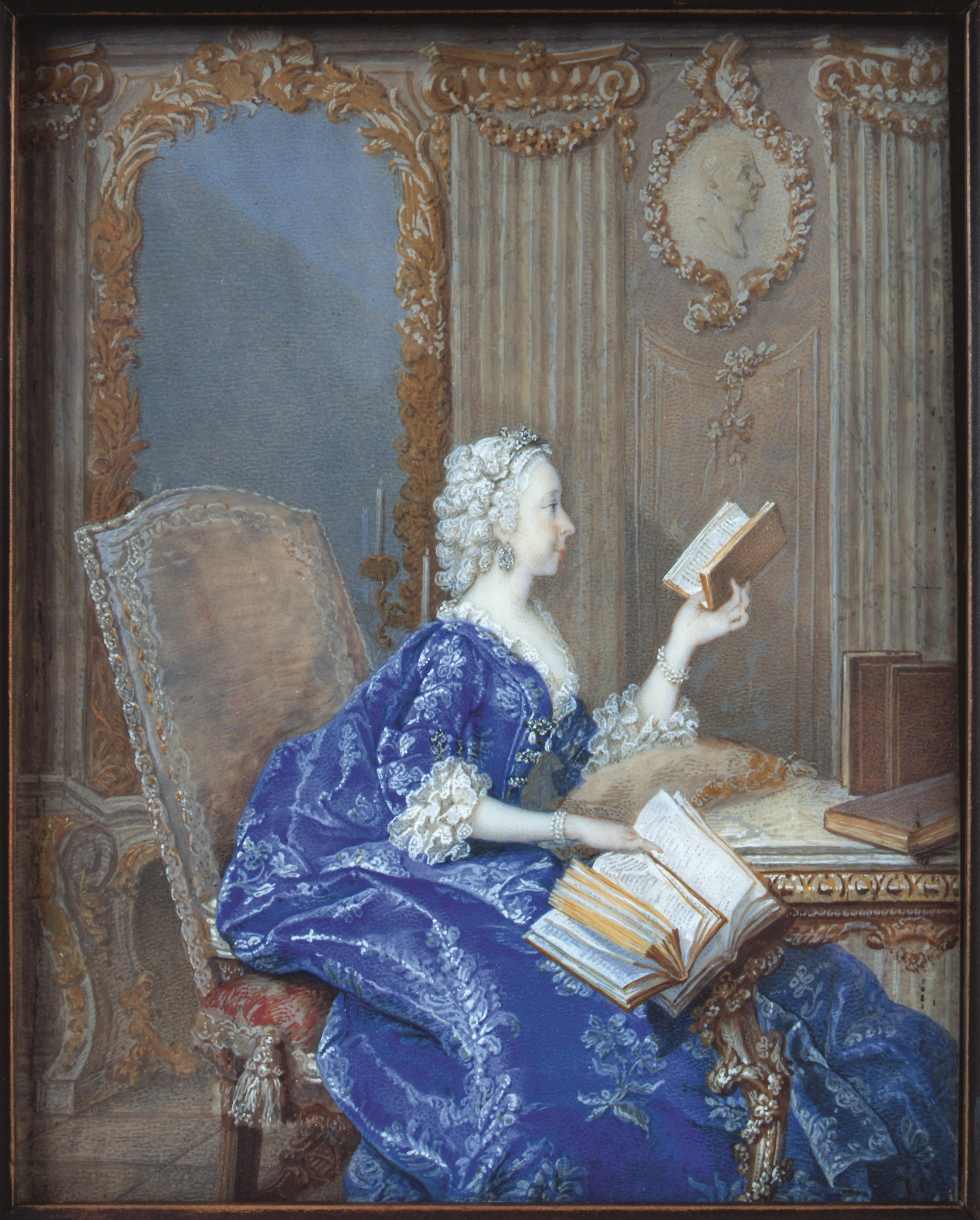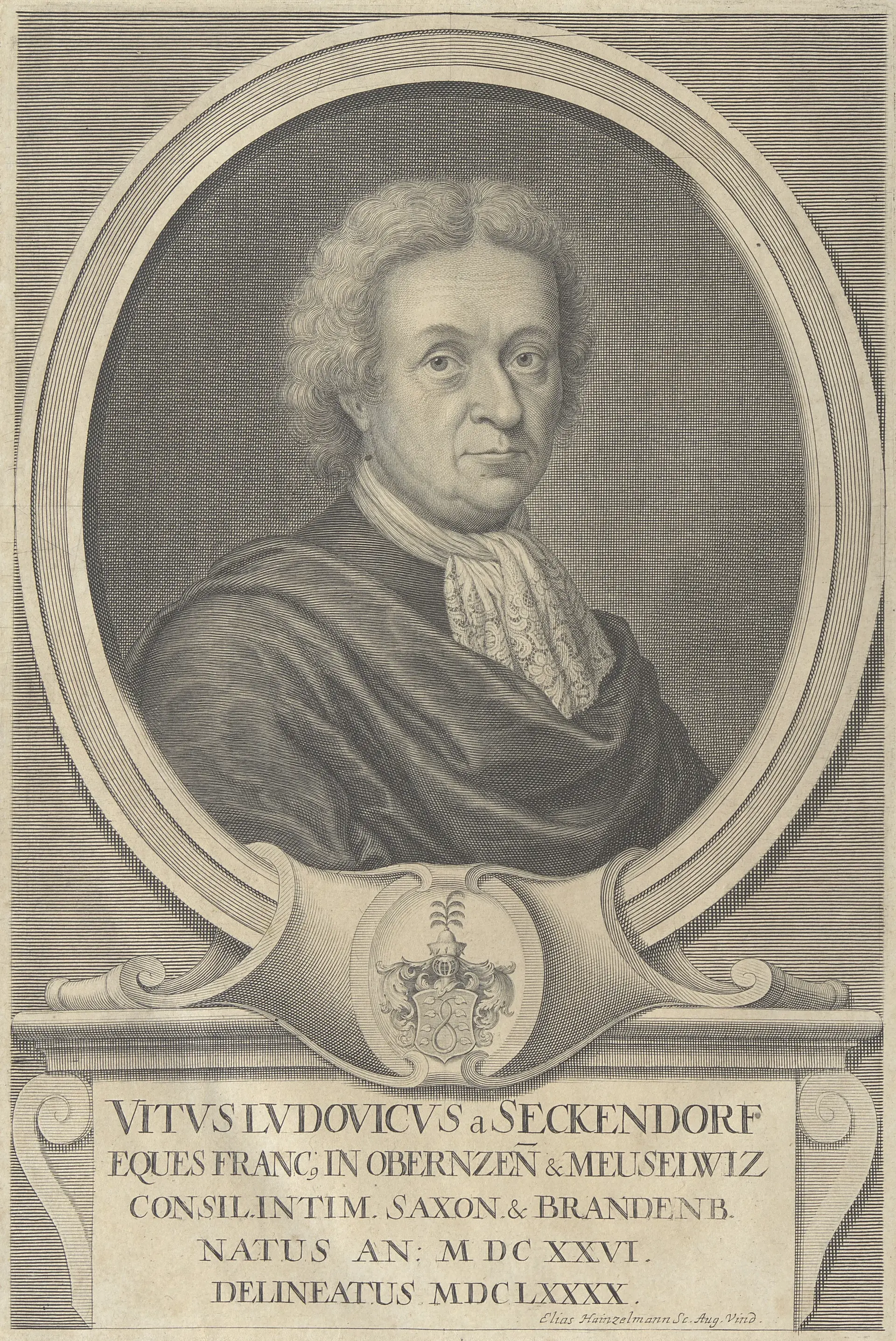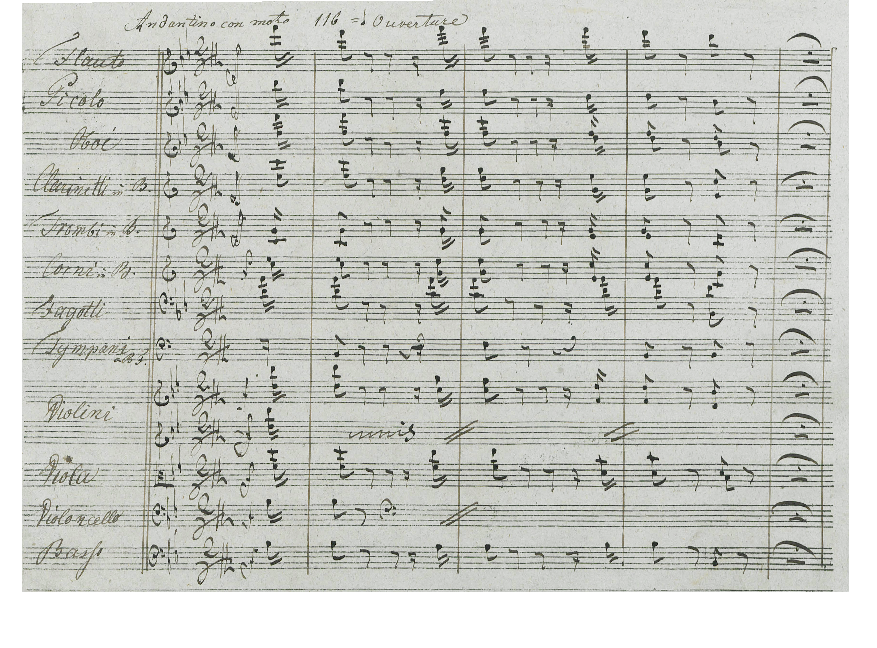The German Research Foundation project "The Gotha - A study of the most important genealogical reference work in modern Europe" at the University of Hamburg and in close cooperation with the Gotha Research Library began in August of 2023. It is dedicated to researching the Gotha Court Calendar/Almanac of Gotha (Gothaischer Hofkalender/Almanach de Gotha) and its sub-series, the genealogical pocketbooks. Published from 1764 to 1944, the Gotha was the most important genealogical directory of European noble families and, as a diplomatic and statistical yearbook, a standard work of the 19th and 20th centuries. In view of its significance, it is surprising that the Gotha is now, for the first time, the focus of a research project analysing the rich holdings of the Gotha Research Library. As a product of the Justus Perthes Publishing House in Gotha, a large part of the relevant material relating to the Gotha is preserved in the Perthes Collection of the Gotha Research Library, in particular the archive and the editorial library. There is also an almost complete edition of the Gotha in the research library.
The complex history of the Gotha goes back to the 1740s and continues a long tradition of preceding publications. The Gotha provided concise but highly reliable information about the current generations of noble houses in Europe. The project will analyse the conditions and production of this publication, its strategies for organising knowledge, and its broader ideological implications and epistemic foundations. The project thus examines a key source for the history of the nobility and genealogy in the modern era, which researchers have often used as a reference work but which they have hardly analysed historically.
The project is part of the interdisciplinary German Research Foundation joint project "World Genealogy: Presenting, Documenting, and Instrumentalising Lineages in Early Modern Asia, Europe, and the Middle East", which examines the significance and function of genealogies from an intercultural perspective. Three other complementary projects from the Universities of Hamburg and Bonn in the fields of Sinology, Japanese Studies and Islamic Studies are therefore running alongside the Gotha project. A conference on the Gotha is planned for 2024 at the Gotha Research Centre and an annual exhibition at the Gotha Research Library in 2025 to mark the 1250th anniversary of the founding of the city of Gotha.
Further information on the project
Duration: 08/2023 - 07/2026
Funding organisation: German Research Foundation
Total volume of the joint project: 1,25 Millionen Euro
Project group
Head: Prof Dr Markus Friedrich (University of Hamburg),
Research assistant: Hannah Boeddeker (University of Hamburg)
Co-operation partner: Gotha Research Library
The Lutheran Duchess Luise Dorothea, born Saxe-Meiningen (1710–1767), played a significant role in shaping the political and cultural life of the Gotha court during the 18th century. As a female author of educational texts, a member of societies and a theologically, philosophically, and aesthetically interested networker, she is counted among those female rulers who helped shape the Early Modern era on cultural and political levels. The influence of these princesses on contemporary politics and society is evident in their book collections. This is particularly true for Luise Dorothea, whose private library of approximately 3,500 works represents one of the most extensive private collections at the Gotha Court. Given her love of all things French and intense (correspondence) contacts, including with Voltaire, her collection was perceived as "French." Remarkably, among the almost entirely French-language prints, there are about 100 'English' male authors and a few female authors, as well as a multitude of books with English, Scottish, Irish, and American references. These publications cover not only works of moral philosophy but also encompass publications from all fields of the so-called fine sciences and liberal arts. Besides the Duchess's preferred works of literary fiction, the collection also includes periodicals, dictionaries, religious literature, political treatises, historical accounts, scientific writings, and travelogues.
The aim of this research project is to systematically reconstruct, analyse, and contextualize the "Bibliotheca Anglicana" within the entire collection, with particular emphasis on the materiality of English books. The results will be published in a monograph and presented in a digital reconstruction.
Duration: 01.11.2023-31.10.2026
Funding: German Research Foundation
Project Partners
Faculty of Theology, University of Göttingen; Gotha Research Library; Gotha Research Centre; Herzog August Bibliothek; Thuringian University and State Library Jena
Project Group
Management: Dr. Gabriele Ball (University of Göttingen)
Gotha Research Library: Dr. Kathrin Paasch, Dr. Hendrikje Carius, Dr. Dietrich Hakelberg
Gotha Research Centre: Prof. Dr. Martin Mulsow, Dr. Markus Meumann
Herzog August Bibliothek Wolfenbüttel: Prof. Dr. Peter Burschel, Prof. Dr. Ulrike Gleixner, Dr. Hartmut Beyer
Thuringian University and State Library Jena: Dr. Andreas Christoph
The scholar and statesman Veit Ludwig von Seckendorff is considered one of the most important exponents of the European republic of scholars between the Thirty Years' War, Pietism and the beginning of the Enlightenment. He is regarded as the founder of modern, scientifically based administrative theory and is one of the most important representatives of Christian state theory as well as Protestant church history. After a stellar career in the service of Duke Ernest of Saxe-Gotha, he moved to the top administrative position in the Principality of Saxe-Zeitz. Shortly before his death, he was appointed Founding Chancellor of the University of Halle/Saale. In his scholarly work, Seckendorff sought to link history, philosophy and politics to natural and international law. Among the multitude of his writings, the “Teutsche Fürstenstaat” of 1656 and the “Commentarius de Lutheranismo” of 1688 (expanded in 1692) stand out.
The provision of its largely untapped and widely dispersed sources – over 7,900 documents in a total of 32 libraries and archives – is a major desideratum in the study of the Early Modern Period. The project will provide new impulses for the source-based interdisciplinary examination of Seckendorff. In addition to the Research Library, the materials to be indexed therein are primarily stored in the State Archives of Altenburg, Gotha and Meiningen, which belong to the Thuringian State Archives, as well as in the Main State Archives of Dresden and the State Archives of Saxony-Anhalt/Wernigerode, with which the Gotha Research Library cooperates closely.
The documents are described in accordance with the Rules for the Indexing of Bequests and Autographs (RNAB). The results will be entered into the Kalliope database of the Berlin State Library – Prussian Cultural Heritage. The conference on the project (https://www.hsozkult.de/event/id/event-115854) took place in March 2023, a publication of the contributions is planned.
Project term:
Funding phase I: 01/2020 - 12/2022
Funding phase II: 01/2024 - 06/2024
Patrons: German Research Foundation
Funding amount: € 278,607
Project group:
Leadership: Dr. Kathrin Paasch (Director of the Gotha Research Library), PD Dr. Monika Müller (Head of Department of Special Collections)
Editors:
Funding phase I: Dr Jacob Schilling, Dr Daniel Gehrt (since 10/2023), Franziska König, Hanna Losfeld (01/2020-07/2021), Linda Maack (since 01/2022)
Funding phase II: Dr Marian Hefter, Dr Daniel Gehrt, Franziska König, Linda Maack
In its efforts to catalogue the Perthes Publishing House Archive, the Gotha Research Library is currently concentrating on the historical archive of the Justus Perthes Publishing House up to 1945/53. The aims of the project are the reconstruction of the tectonics of the historical archive of the publishing house Justus Perthes 1785-1953, the re-sorting of the sections "Editorial Team of Petermann’s Geographische Mitteilungen" and "Workers and Friends of the Publishing House", the indexing and utilisation of the "Company and Family Archive" and the "Image Archive", the revision and expansion of existing research aids, the preparation of research aids for individual estates and the indexing of the holdings in the national Kalliope Union Catalogue KALLIOPE.
Duration: since 2010
Funding organisation: 2010-2013 Thuringian Ministry of Education, Science and Culture, Stephan Justus Perthes
Project group
Head: Dr. Petra Weigel
Collaboration: Sven Ballenthin M.A.
The historically grown music collection of the Research Library focusses on the history of music in Thuringia. The collection contains music theory writings (8,000 pieces of music, including 1,400 manuscripts) and compositions written by the conductors of the Gotha court orchestra in the 17th and 18th centuries. It also includes 130 manuscripts by Johann Christoph Friedrich Bach from Bückeburg from the widely branched Bach family of musicians.
They are catalogued in RISM under the siglum D-GOI.
Publications
Undine Wagner: Von der Musikerfamilie Bach bis zu Böhners Dreiherrnstein. Ein Streifzug durch die Notenhandschriften im Gothaer Schloss Friedenstein. In: Forum Musikbibliothek. Beiträge und Informationen aus der musikbibliothekarischen Praxis, 33 (2012) 2, pp. 23-29.
Duration: since 2005
Funding organisation: Répertoire International des Sources Musicales (RISM)
Project partners: Répertoire International des Sources Musicales (RISM) via the Dresden office at the Staatsbibliothek zu Berlin - Preußischer Kulturbesitz and at the Franz Liszt School of Music / Thuringian State Music Archive Weimar
Project group
Head: Dr Andrea Hartmann (Dresden), Dr Kathrin Paasch (Gotha), Cornelia Hopf (Gotha, until 10/2019), PD Dr Monika E. Müller (Gotha, from 11/2019)
Research assistants: Marina Schieke-Gordienko (Berlin), Dr Undine Wagner (Jena, Weimar)
